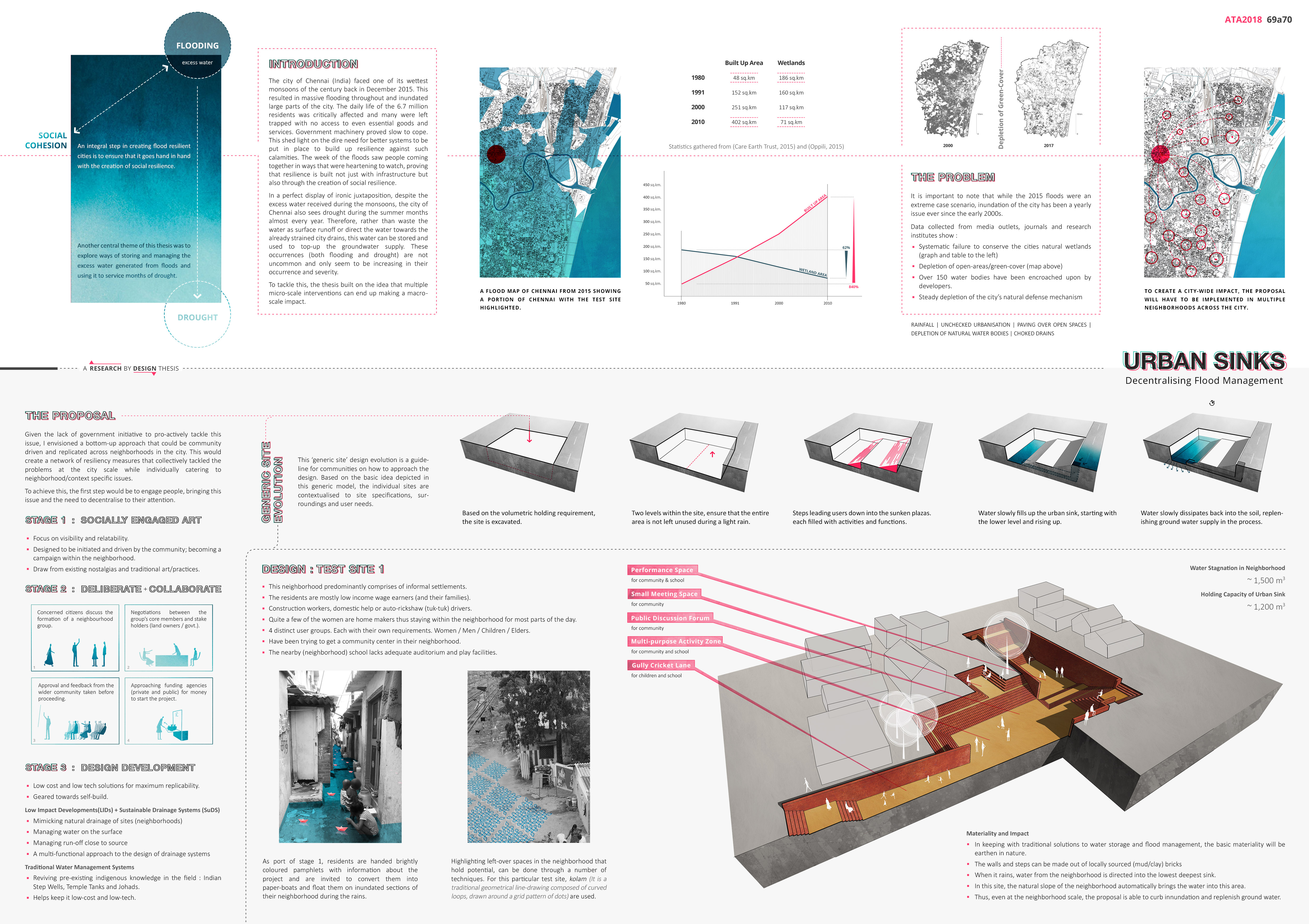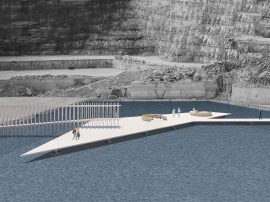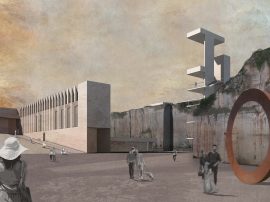At the core of this thesis, are four main questions.
– How can neighbourhoods in Chennai (India) build resilience against flooding?
– How can we address the depleting social cohesiveness of our cities through a flood centric design strategy?
– How can this excess water be used to service Chennai during its months of drought?
– Can we find answers to these questions in the traditional design strategies used in the past?
This thesis sets out to explore the answers to each of these and in doing so, create a ground-up urban design strategy to tackle them.
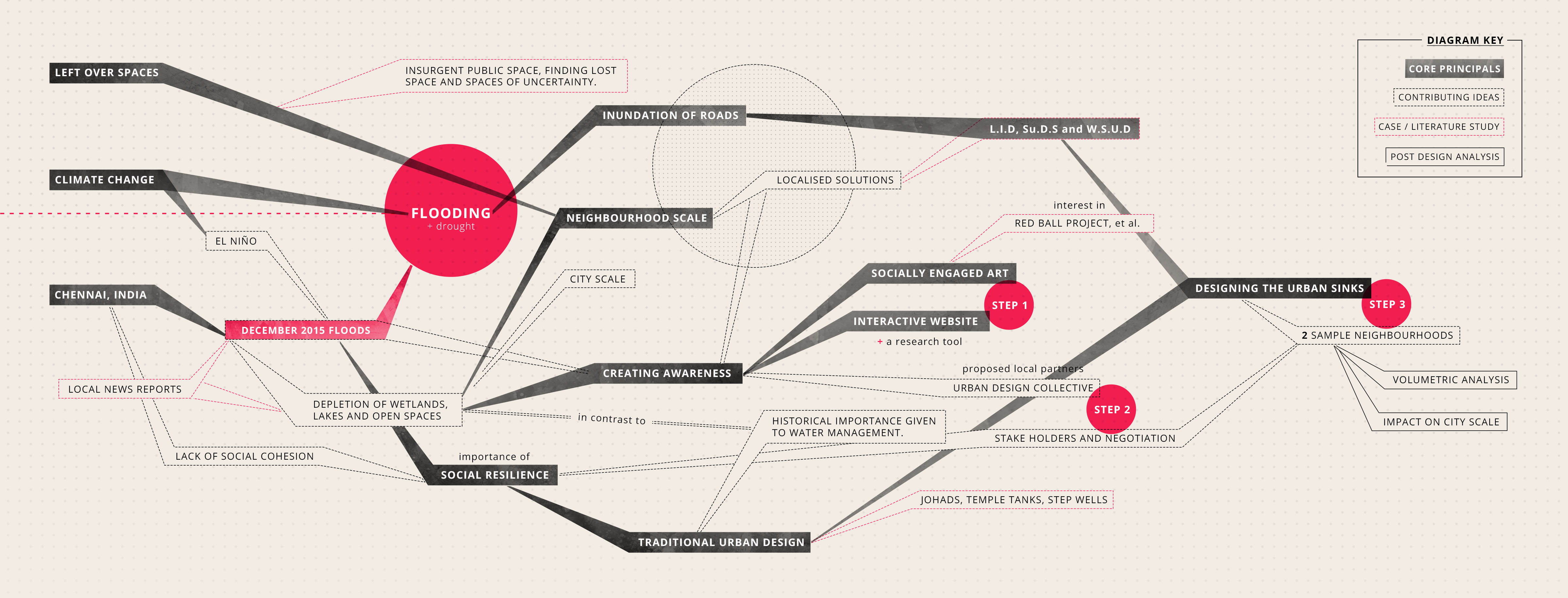
The Methodology Diagram (above) shows the evolution of the project from research to design. Its inspirations, research areas and the theory that fed into the core idea have been depicted here; ultimately culminating in a multi-stage urban design strategy. The study of traditional morphologies of water management in cities (of India) showed an immensely grounded approach to water storage in cities of the past. The thesis thus drew from these sources in addition to aligning with (and understanding) contemporary literature. This ensured that the ultimate proposal was grounded and localised. Analysis of stakeholders and funding sources (in addition to possible local agencies to partner with) further rooted the project.
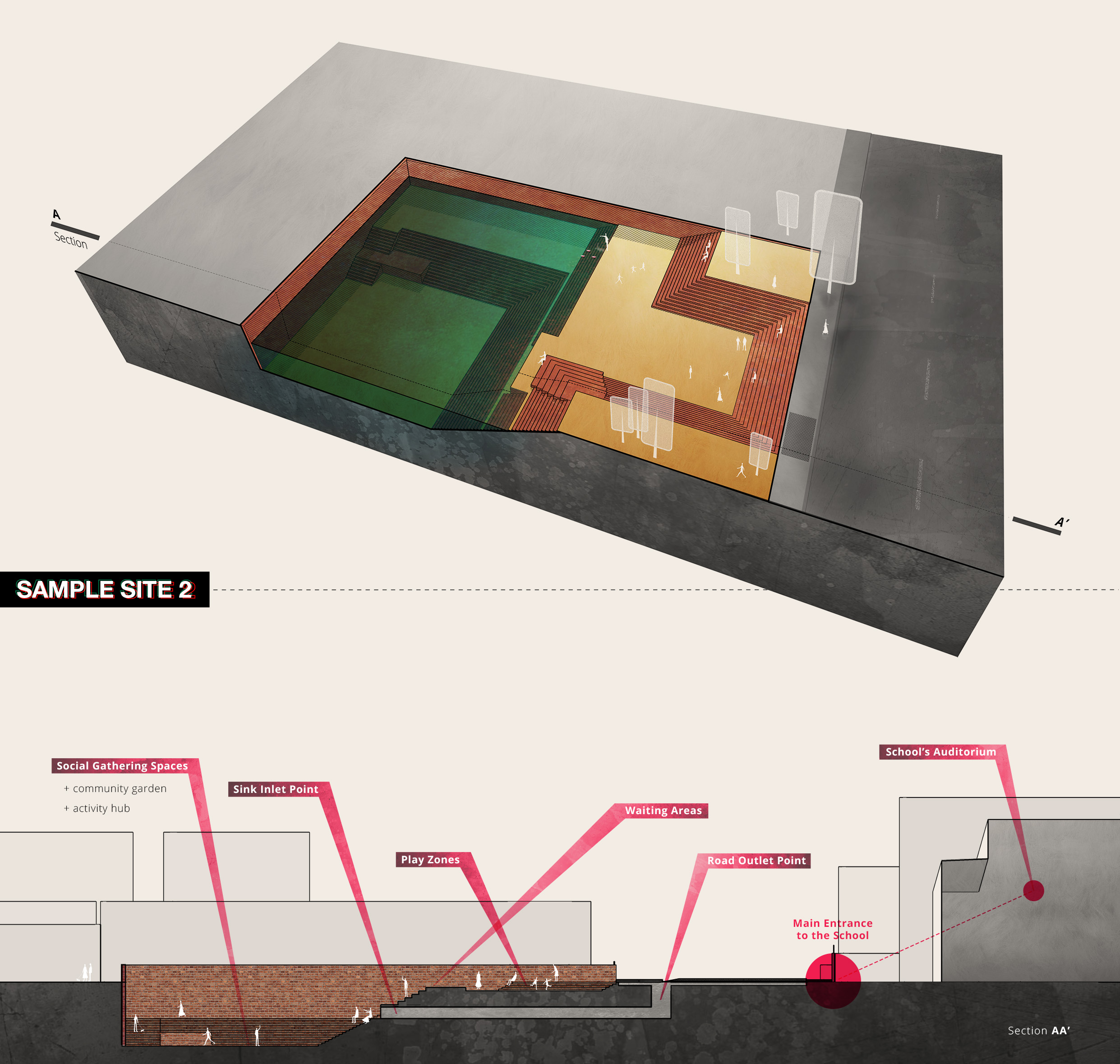
Two sample neighbourhoods were chosen to test how the strategy would play out across socially and economically different settings. The site typology was also different, thus showing the adaptability of the core idea. The first Sample site has been shown in the A1 Sheet below, while the other is shown in the image above. The resultant space, in addition to managing excess flood water in the neighbourhood, breathes new life into the community. This is ensured by making the community part of the decision and design making process, thus reflecting each neighbourhood's character within.
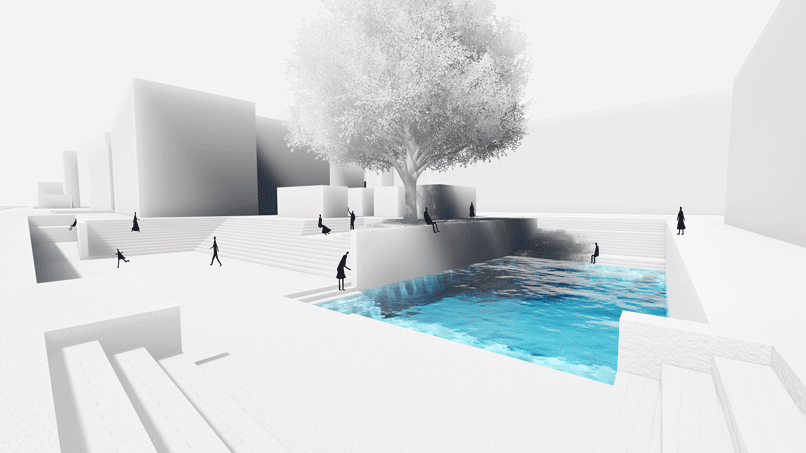
The Board:
